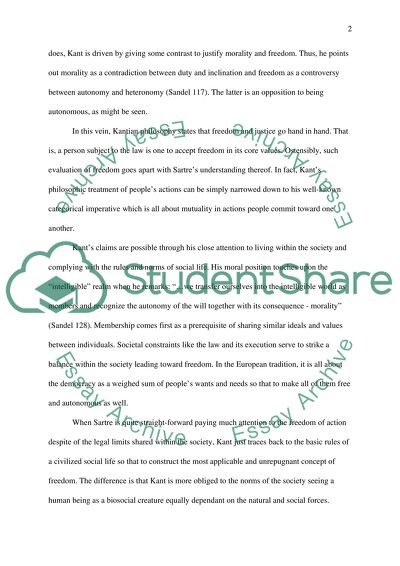Cite this document
(“Exposit both Sartre's account of freedom and Kant's. Which of the two Essay”, n.d.)
Retrieved de https://studentshare.org/philosophy/1433096-exposit-both-sartreyies-account-of-freedom-and
Retrieved de https://studentshare.org/philosophy/1433096-exposit-both-sartreyies-account-of-freedom-and
(Exposit Both Sartre's Account of Freedom and Kant'S. Which of the Two Essay)
https://studentshare.org/philosophy/1433096-exposit-both-sartreyies-account-of-freedom-and.
https://studentshare.org/philosophy/1433096-exposit-both-sartreyies-account-of-freedom-and.
“Exposit Both Sartre's Account of Freedom and Kant'S. Which of the Two Essay”, n.d. https://studentshare.org/philosophy/1433096-exposit-both-sartreyies-account-of-freedom-and.


